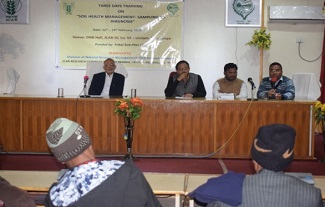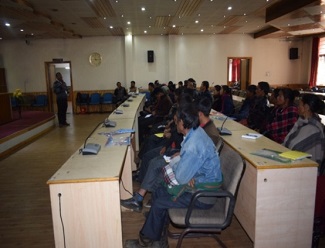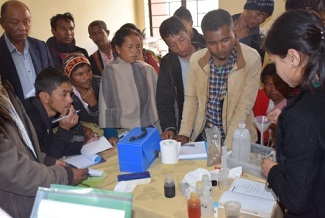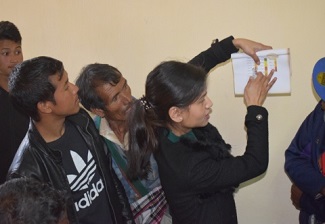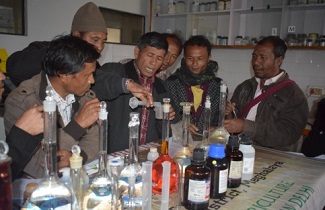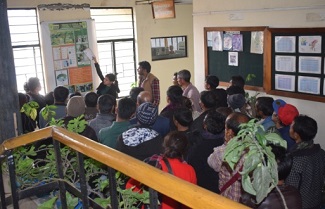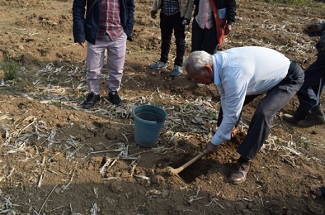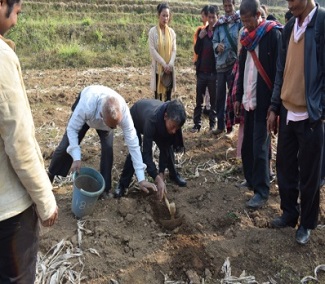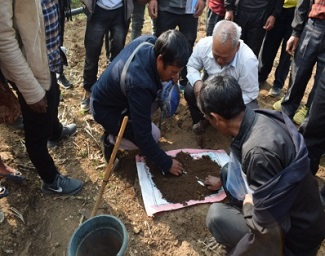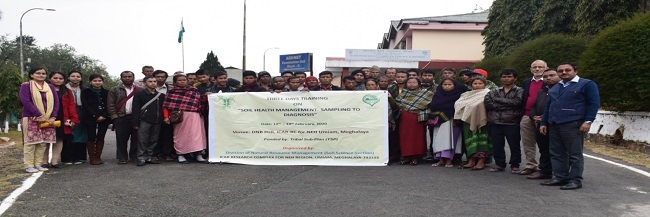ICAR Research Complex for NEH Region conducted a three days residential training program on “Soil Health Management – Sampling to Diagnosis” for tribal farmers of Meghalaya
For sustainable farming, soil health management is inevitable, in particular to the low productive, high rainfall induced erosion led risk prone sloppy uplands of hill agriculture of Northeastern Region (NER) of India. Realizing the importance of location specific soil health and fertility management, many initiatives have been undertaken over the years and in the recent past, large scale implementation of Soil Health Card (SHC) Schemes is one the significant steps in this direction. However, representative soil samplings followed by accurate and authentic soil testing are the two most vital steps to achieve the ultimate goal of SHC schemes – sustain the health of your farm soil without any peril to farm level productivity on long run. A true representative soil sample from the field with fertility gradient followed by accurate soil testing methods holds the key to location specific nutrient diagnosis and so, the soil health management as well. Thus, sampling from strong acidity induced fertility stressed sloppy (imperceptible to steep) uplands with discrete patches in hill agriculture of NER followed by adoption of strong acid soil sensitive methods for soil testing needs special attention. Keeping this in view, a three days farmers residential training programme (12th-14th February, 2020) on “Soil Health Management – Sampling to Diagnosis” was conducted by the scientists of ICAR Research Complex for NEH Region, Umiam, Meghalaya under Tribal Sub Plan (TSP). About 50 farmers from different villages namely Mawmih, Lawmei and Mawlaiteng (East Khasi Hills district), Kyrdem Kulai, Nonglum, Umsning, Nongkya, Syadrit, Nongrim Umksih and Umeit (Ri-Bhoi district) of Meghalaya were trained. During the course, training programme was designed to address four vital steps in management of soil health namely (i) True representative soil sampling technique, (ii) specific simplified methods of acid soil testing, (iii) Interpretation of test results , and finally (iv) recommendation and diagnosis through locally available soil amendments (organic) for sustainable soil health management. Farmers were also given hands – on practical exposure to Rapid Soil Health Testing (RSHT) Kit, developed by the Soil Science section, Division of NRM, ICAR -RC for NEH, Umiam, specifically for acid soils of the region. RSHT is a cheap, simple and rapid in analysis of 40 soil samples for five major nutrients in one time filling up of reagents with six months of stability. Similarly, farmers were exposed to soil health card – preparation, adoption and benefit in improving location specific nutrient diagnosis. Post-training, RSHT were distributed to selected trainees, representing each villages participated in the programme. In addition, one farmer - scientist interaction session in presence of TSP Nodal officer cum Head In-charge of NRM division (Dr. S. Hazarika) was conducted for two- way exchange of soil health related issues- problems and affordable solutions. The training programme was coordinated by the scientists from the divisions of NRM (Dr. B.U. Choudhury- Pr. Scientist, Mrs. M. Prabha Devi-Scientist, Dr. A. Balusamy-Scientist, and Dr. Mahasweta Chakraborty - Scientist) and Horticulture (Dr. H. Talang- Scientist). Ms. Lanamika Kjam acted as translator during the whole program and overwhelming response and feedbacks received from the farmer trainees encouraged the coordinators to take up more such trainings to improve land productivity and livelihood avenues as well in the coming days.
Activities during three days (12-14 February, 2020) residential farmers training |
Soil testing (hand on exercise using RSHK) and diagnostic measures distribution |
Soil sampling – hand on exercise |
Distribution of RSH kits post training session |
